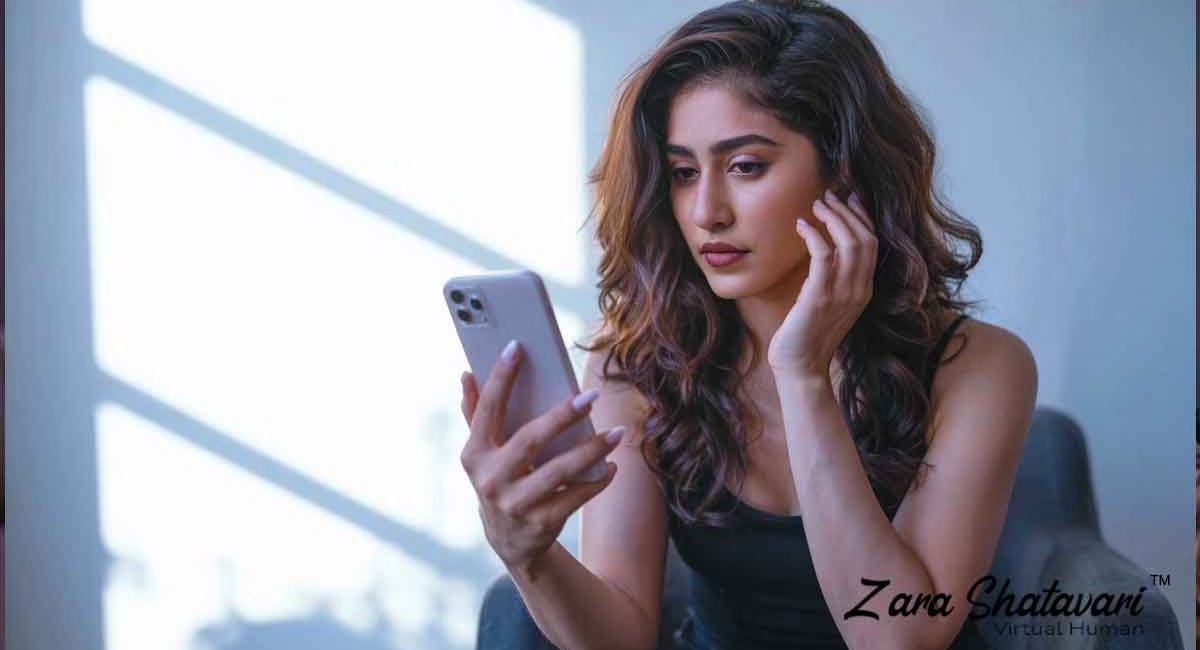Summary
This post explores how social media impacts mental well-being, both positively and negatively. While it can help us connect, express ourselves, and find community, excessive or unmindful use can lead to low self-esteem, comparison, FOMO, anxiety, and poor sleep.
We also cover practical tips to protect your mental health — like setting screen time limits, curating a positive feed, and taking guilt-free breaks. The key takeaway? Social media itself isn’t the problem — how we use it is. With a mindful approach, it can add value to your life without draining your peace.
Social media has become an essential part of how we connect, express, and stay informed. But while it brings people closer, it also comes with an emotional cost — one that many of us feel but rarely talk about.
So, what is the real impact of social media on our mental health? Let’s explore both the good and the not-so-good — and how to use it more mindfully.
🧠 The Emotional Rollercoaster of Social Media
Spending time on Instagram, YouTube, or Twitter can make you feel inspired, informed, or even connected to others — but it can also lead to comparison, anxiety, or burnout. Why?
Because most of what we see online is curated — the highlights, the filters, the wins. And when we compare our behind-the-scenes to someone else’s perfectly polished moments, it’s easy to feel like we’re not doing enough.
“Social media isn’t inherently harmful, but how we use it matters. It can either support or sabotage our mental wellness.”
📉 Negative Impacts on Mental Well-Being
1. Comparison & Low Self-Esteem
Constantly seeing others’ achievements, bodies, or lifestyles can trigger feelings of inadequacy or insecurity.
You may start asking yourself: “Why doesn’t my life look like that?”
2. Fear of Missing Out (FOMO)
Seeing others travel, socialize, or celebrate without you can lead to loneliness or anxiety, even if your day was perfectly fine.
3. Addiction & Reduced Focus
The dopamine hits from likes and comments can create an unhealthy cycle of checking and scrolling, affecting sleep, productivity, and attention span.
4. Cyberbullying or Trolling
Negative comments, online shaming, or passive-aggressive behavior can leave deep emotional scars, especially in teenagers.
5. Disrupted Sleep Patterns
Late-night scrolling or overstimulation can make it harder to unwind, directly impacting your sleep quality and mental recovery.
🌼 But It’s Not All Bad: Positive Effects Too
When used right, social media can boost well-being:
✅ Connection: Helps maintain long-distance relationships and friendships
✅ Expression: A space to share your story or creativity
✅ Community: Easier to find people with similar interests or experiences
✅ Awareness: Access to educational resources, mental health tools, or inspiration
🛡️ How to Protect Your Mental Health While Using Social Media
Here are a few mindful practices:
✨ 1. Set Daily Limits
Use built-in tools on Instagram or YouTube to monitor screen time.
✨ 2. Follow Uplifting Accounts
Curate your feed with creators who make you feel inspired, not insecure.
✨ 3. Avoid Morning & Bedtime Scrolling
Start and end your day with something offline — a book, music, or a mindful breath.
✨ 4. Take Breaks Without Guilt
It’s okay to log off for a day — or a week. Real life needs your attention too.
✨ 5. Talk About How You Feel
If social media is affecting your mood, talk to a friend, therapist, or write it out in a journal.
💬 FAQs
Q1: Can social media cause anxiety or depression?
It doesn’t cause it directly, but excessive or unhealthy use can increase feelings of anxiety, loneliness, and low self-worth.
Q2: Is it okay to take a social media detox?
Absolutely. Many people report feeling calmer, clearer, and more present after taking time off.
Q3: How can parents support teens on social media?
Encourage open communication, educate them about the filtered nature of posts, and lead by example with your own screen habits.
⚠️ Disclaimer:
This post is for educational purposes only and should not replace professional mental health advice. If you’re struggling with anxiety, depression, or digital burnout, please consult a psychologist or licensed therapist.











